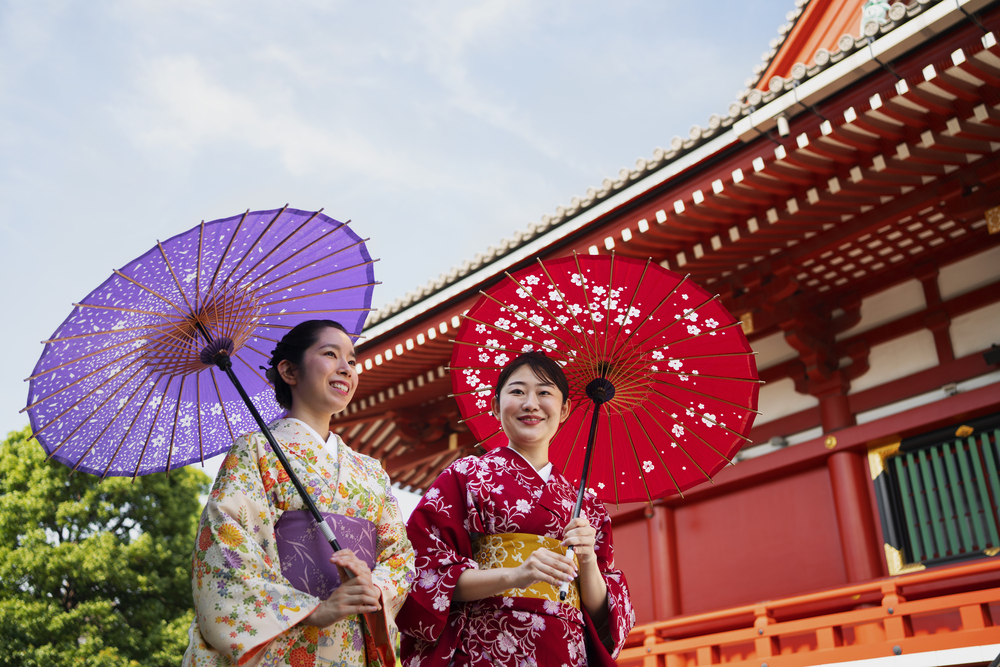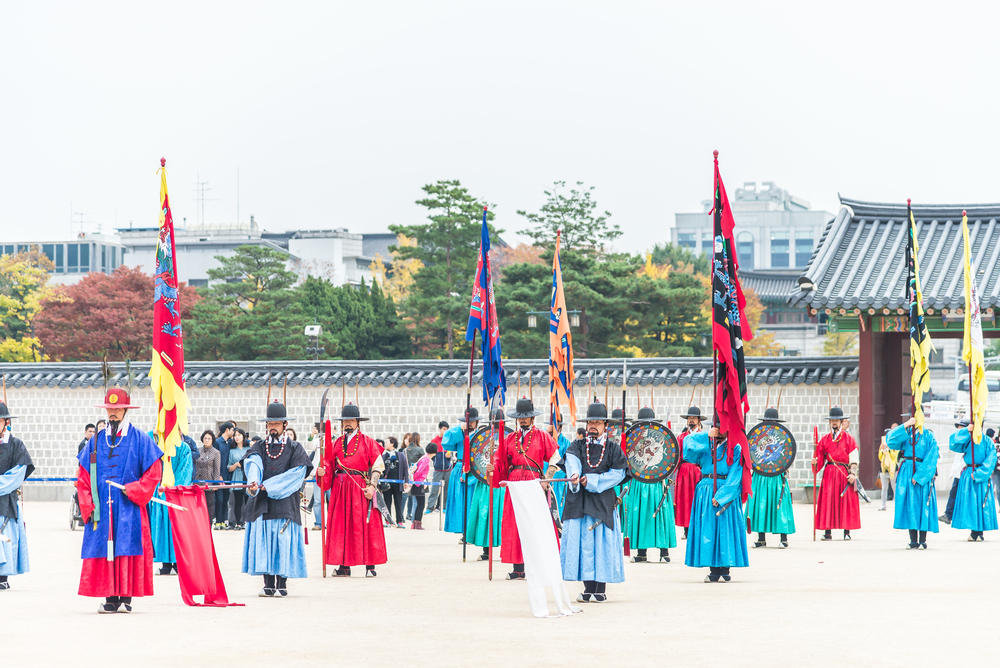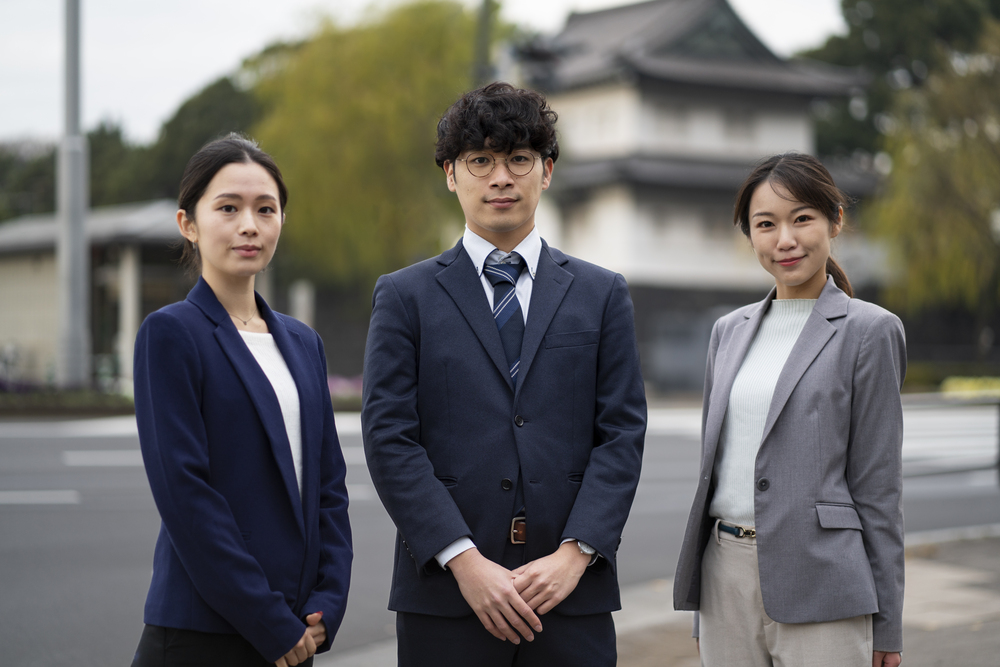Japan and South Korea are two countries in East Asia that have gained global recognition for their economic success, technological innovation, and distinct cultures. In recent years, they have also made strides in enhancing their soft power, which refers to the ability to influence and attract others through non-coercive methods such as culture, diplomacy, and ideology. This article will analyze and compare the soft power of Japan and South Korea, examining their respective strengths and weaknesses and the potential impact of their soft power on international relations.
Soft Power and the Influence of Culture in Japan and South Korea
Soft power is the ability to attract and persuade others through attraction and persuasion rather than coercion or force. Japan and South Korea are two Asian countries that have successfully harnessed the power of culture to enhance their global influence. In this article, we will compare the soft power of Japan and South Korea and explore how they have achieved their success.
Soft Power of Japan
 When it comes to soft power, Japan is a true force to be reckoned with. Its technological prowess is known throughout the world, with brands like Sony, Toyota, and Honda leading the way in innovation and quality. This "Made in Japan" brand has become synonymous with precision, durability, and cutting-edge features, making Japanese technology highly sought after by consumers worldwide. But Japan's soft power extends beyond its technological achievements. The country has also made a name for itself in the culinary world, with its unique and healthy cuisine, such as sushi, celebrated worldwide. Japanese food has become a global phenomenon, with Japanese restaurants popping up in cities around the world. Japan has also utilized gastro diplomacy, using food to promote its image and attract tourists and foreign investors alike. Japan has also been successful in sports diplomacy, particularly in the martial art of judo. Judo, created in Japan in the late 19th century, has since become a popular sport worldwide. Japan's success in the sport, winning numerous medals at the Olympics and other international competitions, has cemented its reputation as a leader in judo. In addition to its economic and cultural achievements, Japan has also played a significant role in promoting education and cultural exchange abroad. The country has many Japanese language schools and cultural centers around the world, offering language classes and cultural exchange programs. These programs not only help to spread the Japanese language and culture but also contribute to a positive image of Japan as a place of learning and cultural exchange. By leveraging these soft power assets, Japan has been able to attract top talent and investment from around the world. Its reputation and influence on the global stage continue to grow, making Japan a true leader in soft power.
When it comes to soft power, Japan is a true force to be reckoned with. Its technological prowess is known throughout the world, with brands like Sony, Toyota, and Honda leading the way in innovation and quality. This "Made in Japan" brand has become synonymous with precision, durability, and cutting-edge features, making Japanese technology highly sought after by consumers worldwide. But Japan's soft power extends beyond its technological achievements. The country has also made a name for itself in the culinary world, with its unique and healthy cuisine, such as sushi, celebrated worldwide. Japanese food has become a global phenomenon, with Japanese restaurants popping up in cities around the world. Japan has also utilized gastro diplomacy, using food to promote its image and attract tourists and foreign investors alike. Japan has also been successful in sports diplomacy, particularly in the martial art of judo. Judo, created in Japan in the late 19th century, has since become a popular sport worldwide. Japan's success in the sport, winning numerous medals at the Olympics and other international competitions, has cemented its reputation as a leader in judo. In addition to its economic and cultural achievements, Japan has also played a significant role in promoting education and cultural exchange abroad. The country has many Japanese language schools and cultural centers around the world, offering language classes and cultural exchange programs. These programs not only help to spread the Japanese language and culture but also contribute to a positive image of Japan as a place of learning and cultural exchange. By leveraging these soft power assets, Japan has been able to attract top talent and investment from around the world. Its reputation and influence on the global stage continue to grow, making Japan a true leader in soft power.
Soft Power of South Korea
 South Korea has emerged as a dominant player in the global entertainment industry, thanks to the rise of K-pop, Korean movies, and TV dramas. The catchy beats, stunning choreography, and colorful visuals of K-pop have captured the attention of millions of fans worldwide. K-pop groups like BTS and Blackpink have achieved worldwide success, breaking records, and topping the charts, which has significantly contributed to South Korea's soft power and cultural diplomacy. Along with K-pop, South Korean movies and TV shows have gained widespread acclaim and popularity. Parasite, which won multiple Academy Awards, and Squid Game, which became Netflix's most-watched show, have helped boost South Korea's global profile and reputation. The South Korean government has invested heavily in promoting its culture abroad, establishing Korean Cultural Centers worldwide. These centers serve as hubs for Korean culture and language learning, promoting the language and culture through language classes, cultural exchange programs, and events. Moreover, South Korea has invested in promoting education and language exchange, with the creation of the "K-pop Academy" to train and support aspiring K-pop artists. This effort not only promotes Korean language and culture but also contributes to building a positive image of South Korea as a hub for cultural exchange and learning. South Korean cuisine, fashion, and beauty have also contributed significantly to the country's soft power. Korean cuisine, such as kimchi and Korean BBQ, has gained a massive following worldwide, with Korean restaurants popping up in major cities globally. South Korea's fashion and beauty industries have also gained international recognition, with Korean fashion brands and beauty products becoming popular worldwide. Through these diverse soft power assets, South Korea has become a leader in cultural diplomacy, attracting investment, and promoting a positive image on the global stage.
South Korea has emerged as a dominant player in the global entertainment industry, thanks to the rise of K-pop, Korean movies, and TV dramas. The catchy beats, stunning choreography, and colorful visuals of K-pop have captured the attention of millions of fans worldwide. K-pop groups like BTS and Blackpink have achieved worldwide success, breaking records, and topping the charts, which has significantly contributed to South Korea's soft power and cultural diplomacy. Along with K-pop, South Korean movies and TV shows have gained widespread acclaim and popularity. Parasite, which won multiple Academy Awards, and Squid Game, which became Netflix's most-watched show, have helped boost South Korea's global profile and reputation. The South Korean government has invested heavily in promoting its culture abroad, establishing Korean Cultural Centers worldwide. These centers serve as hubs for Korean culture and language learning, promoting the language and culture through language classes, cultural exchange programs, and events. Moreover, South Korea has invested in promoting education and language exchange, with the creation of the "K-pop Academy" to train and support aspiring K-pop artists. This effort not only promotes Korean language and culture but also contributes to building a positive image of South Korea as a hub for cultural exchange and learning. South Korean cuisine, fashion, and beauty have also contributed significantly to the country's soft power. Korean cuisine, such as kimchi and Korean BBQ, has gained a massive following worldwide, with Korean restaurants popping up in major cities globally. South Korea's fashion and beauty industries have also gained international recognition, with Korean fashion brands and beauty products becoming popular worldwide. Through these diverse soft power assets, South Korea has become a leader in cultural diplomacy, attracting investment, and promoting a positive image on the global stage.
The Soft Power of Japan and South Korea: A Comparison

Pop Culture
South Korea's pop culture, also known as the Korean Wave or Hallyu, has gained a massive following worldwide. K-pop groups like BTS and Blackpink have topped global charts, and Korean dramas like Squid Game and Parasite have won international acclaim. The Korean government has actively promoted Hallyu through initiatives like the establishment of Korean Cultural Centers and the K-pop Academy. In contrast, Japan has a long-standing reputation for its pop culture exports, such as anime, manga, and video games. These have gained a worldwide following, with anime series like Naruto and Attack on Titan being especially popular. Japan's gaming industry is also a major export, with video games like Mario and Pokemon becoming household names. Japan has also established cultural centers worldwide to promote its pop culture.
Food
Japan and South Korea both have unique and delicious cuisines that have gained worldwide recognition. Japanese cuisine, with its emphasis on fresh, seasonal ingredients and simple preparation, has become a global sensation. Sushi, ramen, and tempura are just a few examples of Japanese dishes that have gained worldwide popularity. Japan has many Michelin-starred restaurants, and Tokyo is often considered the world's food capital. South Korean cuisine is also gaining popularity worldwide, with dishes like kimchi, bibimbap, and Korean barbecue becoming more widespread. The Korean government has actively promoted Korean cuisine through initiatives like the Seoul Food and Hospitality Expo.
Technology
Japan and South Korea are both known for their technological prowess. Japan has a long-standing reputation for innovation in fields like robotics, electronics, and automobiles. Many of the world's leading tech companies, such as Sony, Nintendo, and Panasonic, are based in Japan. South Korea is also a major player in the tech industry, with companies like Samsung and LG dominating the global market for smartphones, televisions, and other electronics.
Education
Both Japan and South Korea have highly educated populations, which has contributed to their soft power. Japan has a world-renowned education system, with its universities regularly ranked among the best in the world. In recent years, the Japanese government has increased efforts to attract more international students to study in Japan, setting a goal of reaching 300,000 international students by 2024. However, due to the impact of the COVID-19 pandemic, international student enrolment in Japan decreased by 13.3% in 2021, with 242,444 international students in the country as of May 1. Despite this setback, Japan remains committed to attracting more international students and promoting its culture abroad. The government has set a long-term goal of having 500,000 Japanese students studying abroad and 400,000 international students in Japan by 2033 and is implementing various initiatives to achieve this, such as offering more scholarships and improving support services for international students. South Korea’s education system is also highly regarded, with its emphasis on hard work and discipline leading to impressive academic results. The country has made significant investments in education and research, with its universities ranked highly in global rankings. South Korea has also been actively promoting its language learning programs, including Korean language classes, to attract international students and promote Korean culture abroad. According to recent data, there were over 160,000 international students studying in South Korea in 2020, with China, Vietnam, and Mongolia being the top three source countries. The South Korean government has also implemented various initiatives to support international students, including providing scholarships, offering Korean language classes, and facilitating job opportunities after graduation.
Japan and South Korea's Soft Power Strategies: A Look into the Future
From technological advancements to cuisine and pop culture, Japan and South Korea have both established themselves as key players in the world of soft power. While they share similarities in terms of the popularity of their pop cultures exports, such as K-pop and Japanese anime, they also differ in their approaches. Japan focuses on its traditional culture and history, while South Korea's soft power is more modern and dynamic. However, both countries have made significant investments in promoting their soft power abroad through education and cultural exchange programs. Japan has established numerous Japanese language schools and cultural centers worldwide, while South Korea has created the "K-pop Academy" and Korean Cultural Centers. These programs not only promote language and cultural exchange but also contribute to a positive image of the countries as hubs for learning and cultural exchange. As Japan and South Korea continue to enhance their soft power, they are likely to shape global perceptions and influence policy decisions on the international stage. Their success in promoting their cultures and values through soft power has the potential to significantly impact international relations. #MadeInJapan #Japan #SouthKorea #SoftPower #CulturalDiplomacy #KPop #JPop #JapaneseCuisine #KoreanCuisine #AsianCulture #InternationalRelations #Gastrodiplomacy #SportsDiplomacy #KoreanMovies #JapaneseTechnology #KoreanFashion #JapaneseFashion #KoreanBeauty #JapaneseBeauty #LanguageExchange #CulturalExchange #Hallyu